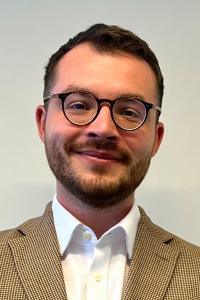Working Group Terrorism and Domestic Security
Asset Publisher
Working Group of Terrorism and Domestic Security
Network for Experts in Counter-Terrorism and Domestic Security
Asset Publisher
Development and Background
The Working Group Terrorism & Domestic Security was initiated by the Konrad-Adenauer-Stiftung in 2015. With the Islamic State’s (IS) proclamation of a caliphate in 2014, it became clear how international terrorism had become more salient for domestic security and the extent to which foreign and domestic security policies are closely intertwined.
Members of the Working Group regularly come together in Berlin, Cadenabbia or abroad so as to exchange on the latest political events and jointly develop solutions to current problems. As part of their events and travels, they hold discussions with high-ranking political and civil society actors, participate in panel discussions and conferences as well as writing policy papers.
Themes and Objective
The Working Group’s content is mainly focused on the threat posed by Islamist and right-wing extremism and terrorism, but also has proven expertise in the field of left-wing extremism and terrorism. What is more, members address issues such as the protection of critical infrastructure, cyber security, prevention and radicalism along with state security architecture. The Working Group consists of around 25 members, who, inter alia, are employed in ministries and security authorities, at the Bundeswehr (Federal Armed Forces), in the private sector or in think tanks, as doctoral candidates or as parliamentary staff.
By combining these different competencies, the Working Group aims to consider political solutions to domestic and foreign security as two sides of the same coin and to better network them. The intention here is to contribute towards strengthened expertise in German domestic security.
Members
The Working Group is open to experts and practitioners (PhD candidates, career entrants and young professionals) from the areas of domestic and foreign security, radicalism and the prevention as well as combating of terrorism, who identify with the goals of the Konrad-Adenauer-Stiftung and feel connected to its work.
Those interested in cooperating with the Working Group should have professional expertise in at least one of the above-cited topics. A precondition is a Master’s degree or comparable qualifications.
For further information, don’t hesitate to get in contact with the Programme Officer.
Members of the working group at a glance: A–H
Dr. Jürgen Brandsch
Portfolio Manager, KfW Development Bank
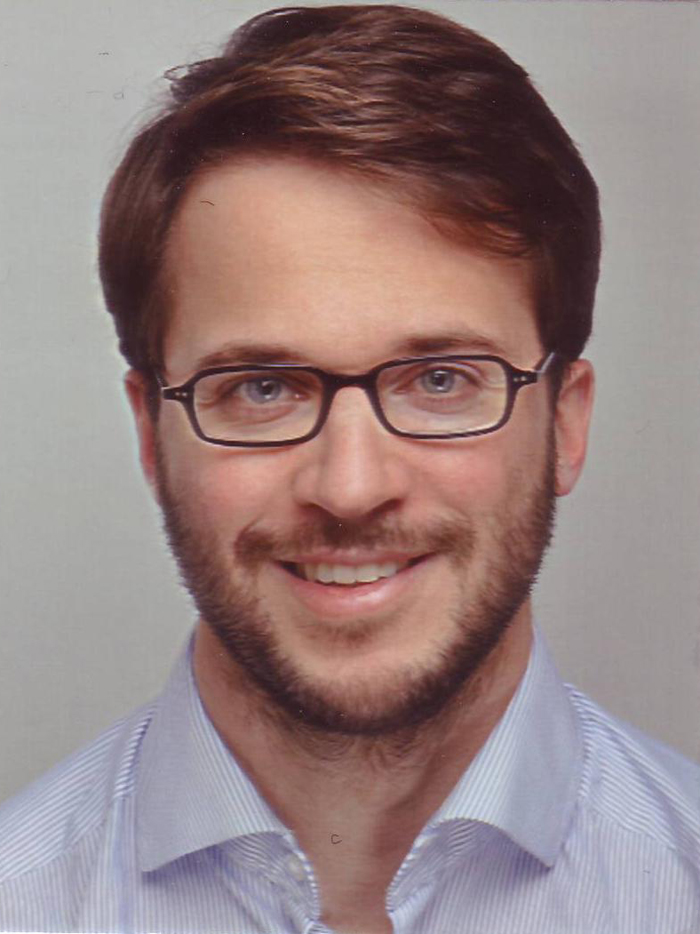
- Many years of experience in international cooperation, including project leader and head of department at the Bonn International Centre for Conflict Studies (BICC) as well as advisor for peace and security at the Deutsche Gesellschaft für Internationale Zusammenarbeit (GIZ).
- Academic work in the field of terrorism and conflict research at the Universities of Mannheim and St Andrews. PhD on violence against civilians in civil wars at the University of St Andrews.
- Former fellow of the Konrad Adenauer Foundation e.V.
- Research interests: Strategies of Terrorism, Quantitative Analysis of Terrorism, Counterinsurgency, Violence against civilians in armed conflict
Publications:
- Killing Civilians in Civil War: The Rationale of Indiscriminate Violence. Boulder, CO 2020.
- Provoking ordinary people. The effects of terrorism on civilian violence, in: Journal of Conflict Resolution 2020 (with André Python)
- Provoking local ethnic violence. A global study on ethnic polarization and terrorist targeting, in: Political Geography 58 (2017), pp. 77-89 (with André Python andré Python) Aliya Tskhay)
Dr. Marcel Dirsus
Non-Resident Fellow at the Institute for Security Policy at the University of Kiel

- Doctorate at the Christian-Albrechts-Universität zu Kiel at the Institute of Social Sciences in the Department of Political Science financed through a Manfred-Wörner-Stipendium by the Konrad-Adenauer-Stiftung e.V.
- MSc Russian and East European Studies, St Antony’s College, University of Oxford
- B.A. Politics and International Studies, University of Warwick
- Research: Coups, uprisings, regime instability and foreign policy
Publikationen:
How Tyrants Fall (2024), Autor: Marcel Dirsus
Foreign Affairs, Foreign Policy, The Washington Post und War on the Rocks
Lisa Erlmann
PhD student, University of the Bundeswehr Munich
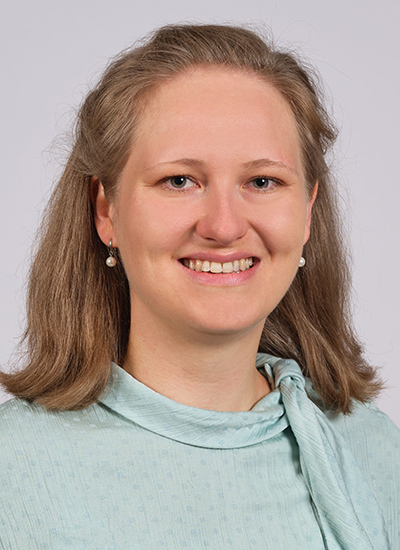
- PhD student at the Center for Intelligence and Security Studies (CISS) at the University of the Bundeswehr Munich
- Working experience at the Munich Security Conference, the German Corporation for International Cooperation GmbH (GIZ), the German Institute for International and Security Affairs (SWP), and the German Federal Foreign Office
- MasterClass "Prevention of Islamism“ at the German Federal Agency for Civic Education
- Civilian leaders' program of the German Air Force (InfoDVag Lw)
- M.A. Politics & Religion, Martin Luther University Halle/Wittenberg
- B.A. Arabic & Islamic Studies and B.A. African Studies, University of Leipzig
- Extended board member of Women in International Security Germany (WIIS.de)
- Research interests: Religion & Security, Islamist terrorism (Germany, Sahel, East Africa)
Merlina Herbach
Junior Research Fellow, International Centre for Counter-Terrorism (ICCT), The Hague
- Junior Research Fellow at Rule of Law Responses to Terrorism Programme, International Centre for Counter-Terrorism (ICCT), The Hague, Netherlands
- LLM International Law, University of Edinburgh, UK
- BA Political Science, Ludwig-Maximilians-University, Munich
- Previously Legal Fellow and Trial Monitor for the Syria Justice and Accountability Centre (SJAC)
- Previously Project Assistant and Intern for the International Nuremberg Principles Academy
- Interned with the Office of the International Co-Prosecutor at the Extraordinary Chambers in the Courts of Cambodia (ECCC)
- Research Interests: interlinkages between international criminal law and terrorism; rule of law and human rights based responses to terrorism; criminal justice and administrative measures, foreign terrorist fighters and their families
Publications: Mehra, Tanya, Thomas Renard and Merlina Herbach, ed(s). Female Jihadis Facing Justice: Comparing Approaches in Europe. The Hague: ICCT Press 2024. Mehra, Tanya, Herbach, Merlina, Margolin, Devorah and Austin C. Doctor. Trends in the Return and Prosecution of ISIS Foreign Terrorist Fighters in the United States, ICCT Report, 23 August 2023. Merlina Herbach. Banning, Designating, Disarming? Legal Implications of countering the Reichsbürger Movement, ICCT Analysis, 7 June 2024. Phillips, Roger Lu and Merlina Herbach. ISIS as a Joint Criminal Enterprise Part I: Reinvigorating JCE for the Prosecution of Foreign Fighters and ISIS as a Joint Criminal Enterprise Part II: The Role of Women, Opinio Juris, 9 September 2021.
Cäcilia Hermes
Legal trainee at the Court of Appeal in Berlin, domestic policy advisor in a Member of Parliament's office; focus of work: migration
- Volunteer work with victims of poverty and forced prostitution/human trafficking. Member of the Axel Springer Freedom Foundation
- PhD student: Norms in the Internet between cyber security and international freedom of information, University of Giessen
- Studied law in Bonn and Budapest, specializing in international law, alumna of the German National Academic Foundation and "Honor Student" of the University of Bonn
Publikationen: Cyberspace as an Example of Self-Organizsation from a Network Perspective, ZaöVR
Leoni Heyn
Researcher & PhD Candidate
- Researcher & PhD candidate at the Department of Political Science at Kiel University and the Center for Terrorism and Radicalisation Research at the Institute for Security Policy (ISPK)
- Work experience at the Federal Academy for Security Policy, Berlin and the Federal Foreign Office as well as study-related stays abroad in Egypt, Great Britain and at New York University
- MA in History and Political Science and BA in Modern History and Islamic Studies, Christian-Albrechts-University Kiel
- Member of Women in International Security (WIIS)
Research Interests: Anti-Government Extremism, Reichsbürger, Conspiracy Theories, Radicalisation (especially online) and Digital Networks of Extremist Entities
Miriam Katharina Heß
Research Fellow
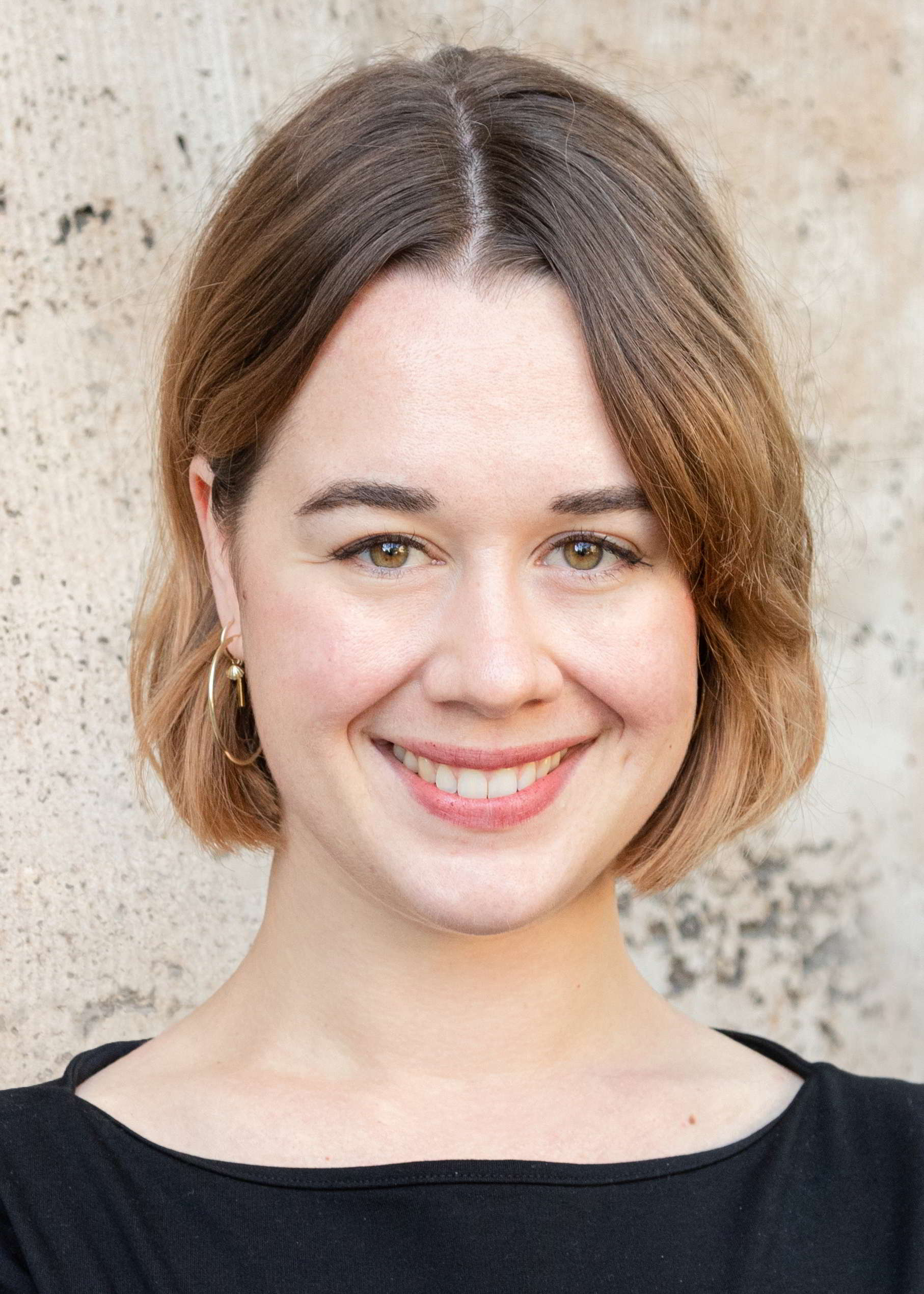
- Research Fellow for Terrorism and Extremism in the Security and Defense Program of the German Council on Foreign Relations (DGAP).
- PhD at the University of Leipzig on securitization through terrorism in Russia and France.
- Previously worked as a project associate at the International Forum for Exchange on Countering Islamist Extremism (InFoEx) and at the Robert Bosch Center for Central and Eastern Europe, Russia and Central Asia at the German Council on Foreign Relations.
- M.A. National and International Administration and Policy at the University of Potsdam; B.A. Political Science at the University of Hamburg.
- Memberships with the German Society for East European Studies (DGO) and Women in International Security (WIIS).
- Main research interests: State Terrorism, Chechen foreign terrorist fighter (Konflikte: Afghanistan, Ukraine, Syrian), Nuclear Terrorism, Abuse/Politicization of Counterterrorism and Islamism in the Chechen Diaspora in Europe (Special Expertise: Austria)
Photo: © DGAP / Zsófia Pölöske
Sebastian Hoffmeister
Legal and Policy Advisor at the German Bundestag (CDU/CSU Parliamentary Group), Berlin
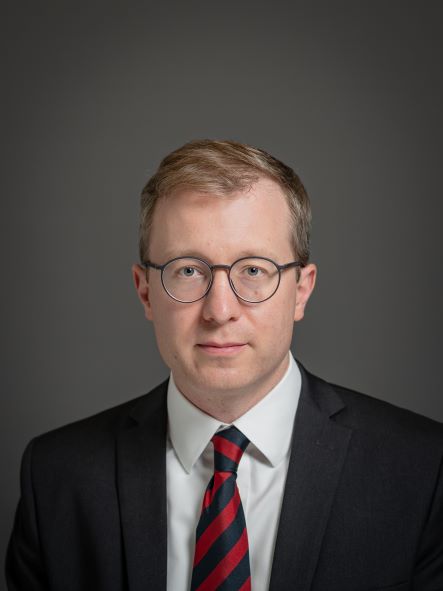
- • Since 2020: Legal and Policy Advisor to the Chairman of the CDU/CSU Parliamentary Group. Focus on homeland security, immigration, legal affairs and digital.
- • 2013-2020 Legal and Policy Advisor at the Federal Ministry of the Interior, Berlin. Focus on homeland security, cybersecurity, and immigration policy.
- • 2013 Judge (criminal law and civil law) at Göttingen Regional Court.
- • 2010-2012 Law Clerk (trainee judge) at Braunschweig Higher Regional Court with secondments, i. a., to the Federal Foreign Office, Berlin, and a law firm in Tel Aviv, Israel
- • 2004-2009 undergraduate and graduate degrees in law, Hamburg and Lexington (USA). Focus on public international and European law. Fellow of the Konrad Adenauer Foundation.
Members of the working group at a glance: I–O
Sofia Koller
Senior Research Analyst, Counter Extremism Project (CEP) in Berlin

- external expert, for example for the Radicalisation Awareness Network (RAN) of the European Commission (DG Home)
- previously Project Leader of the International Forum for Exchange on Countering Islamist Extremism (InFoEx) at the German Council on Foreign Relations (DGAP); project coordinator in Lebanon and France
- M.A. International Conflict Studies, King’s College London; B.A. International Relations and Management in Germany and Jordan
- Scholarships from the Foundation of German Business (sdw) and the DAAD
- Member at the European Expert Network on Terrorism Issues (EENeT) and Women in International Society (WIIS)
- Research focus: countering violent Islamist extremism (CVE), including the prosecution, rehabilitation and reintegration of foreign terrorist fighters in Germany and France
- Selected Publications:
- Prosecution of Returnees from Syria and Iraq in France, CEP, 2023
- Should I Go Or Should I Stay: Foreign Terrorist Fighter Mobilization After The Taliban’s Takeover In Afghanistan, KAS Report, 2022
- Holding Women Accountable, Prosecuting Female Returnees in Germany, CTC Sentinel, 2021 (with Alexander Schiele)
Dr. Franca König
Head of the IMK Chair 2023 Office, Berlin Senate Department for the Interior and Sport
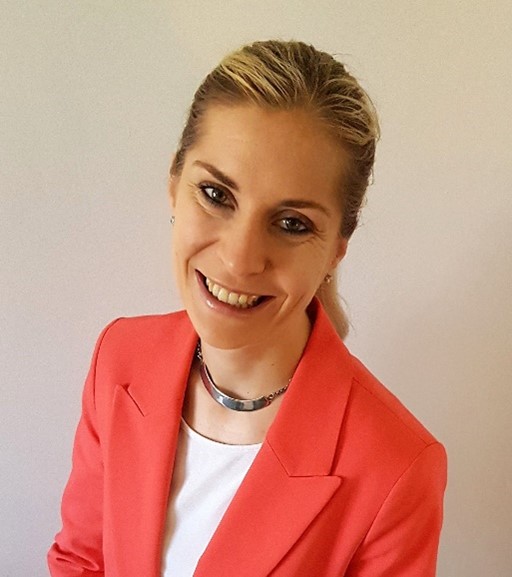
- Franca König holds a doctorate in political and European studies with a focus on security policy and police cooperation. After studying in Maastricht and Oxford, she worked in government and government-related areas at national, European and international level, including at Europol and the UN Conference on Disarmament. Franca König currently works in Berlin as head of the office for the Berlin Presidency of the Conference of Interior Ministers at the Senate Department for the Interior and Sport, where she previously worked as an EU advisor and on the Russia-Ukraine crisis team. She is passionate about German and European internal security as well as operational and political cooperation between member states and security authorities. She has extensive knowledge of the current political, factual and threat situation in the fields of police work, cyber/hybrid threats, terrorism and serious/organized crime. In her doctorate at the Hertie School of Governance, she also dealt intensively with the role of Europol and mechanisms of international and police cooperation.
As a woman in security policy, Franca König is also committed to ensuring that more women find their way into security policy and supports them in actively shaping it.
Publications:
- Big Data, 5G and AI: How Europol could help von der Leyen achieve her goals, Berlin: Jacques Delors Centre, 24 February 2020.
- How a virus is raising questions about cyberspace, non-conventional threats and hybrid warfare, Rome: Aspenia online, 14 April 2020.
- The Rise of EU Police Cooperation: Governing Differentiated Integration, London: Routledge, 30 December 2022.
- Gemeinsam mit S. Lukosek: „Putins langer Arm – russische Einflussnahme über rechtsextreme Netzwerke in Deutschland und Europa“. Berlin: Konrad Adenauer Stiftung.
Dinah Elisa Kreutz
Business Consultant

- Long-standing work experience as a Research Assistant in the German Bundestag and in the Landtag of Bavaria.
- Degree programme in Political Science at the Hochschule für Politik München and ongoing doctorate on State Building as an Instrument of Foreign and Security Policy
- Former scholarship holder at the Konrad-Adenauer-Stiftung, alumni of the KAS doctoral study programme “Security and Development” and Manfred-Wörner-Scholarship of the KAS.
- Internships and voluntary work, e.g., at the German Council on Foreign Relations
- Alumnus of the International Visitor Leadership Program (IVLP) of the US State Department
- Research focuses: Domestic Security, Counter-Terrorism, Islamist Terrorism, Fragile Statehood, State Building in MENA Region, German and European Foreign and Security Policy
Alexander Sami Lang
Corporate Security Manager

- Mlitt. Middle East, Caucasus and Central Asian Security Studies, University of St. Andrews
- Double B.A. & M.A. International and European Governance (Focus on Conflict and Development Issues), Sciences Po Lille, WWU Münster
- Internships and part-time work inter alia at the headquarters of the Foreign Office, the Heidelberg Institute for International Conflict Research (HIIK), the Hessian Foundation for Peace and Conflict Research (HSFK) as well as at Human Rights Watch (HRW).
- Work priorities: Nexus Between Organised Crime and Terrorism, Terrorist Financing, Instrumentalisation of Terrorist Groups by States, Islamist Terrorism in Algeria
Dr. Sandra Lukosek
Research Assistant at the German Constitutional Court

- Legal traineeship with positions at the Federal Chancellery, at the German Constitutional Court, at the Berlin Public Prosecutor’s Office (Department for Organised Crime), at Noerr (foreign trade legislation)
- Doctorate (Dr iur) on the Reform of Association Law and the Need to Further Develop the Public Law on Associations with Particular Focus on the Practice of Banning Rockers’ Associations and Islamist-Extremist Associations
- Law degree course at the Humboldt-Universität zu Berlin and King’s College London with an emphasis on Security Law, Constitutional Law, Legal Enactment and Legislation
- Functions: Research Assistant to Katharina Landgraf Member of the Bundestag (MdB) and at Gleiss Lutz, Tutor in the East-West Network at HU Berlin (seminar on German and European Security Structure)
- Research and Work Priorities: Security as a Task of the State, Duties to Protect under Security Law Provisions in the Constitution, Security Architecture, Hybrid Threats, Resilience
Publications:
- Das Gewicht der Sicherheit als Herausforderung des liberalen Verfassungsstaates – Sicherheit als Staatsaufgabe, Staatsziel, grundrechtliche Gewährleistung? in: GSZ 2020, 233 (with Professor Hans Hofmann und Dr Florentine Schulte-Rudzio)
- Die EnWG-Reservemechanismen als „Schattenkapazitätsmarkt“? – Instrumente zur Gewährleistung von Versorgungssicherheit und Klimaschutz, in: Commercial Archive 1/2019, 12 (with Dr Marc Ruttloff)
Members of the working group at a glance: P–S
Livia Puglisi
Head of Office Federal President (ret.) Christian Wulff
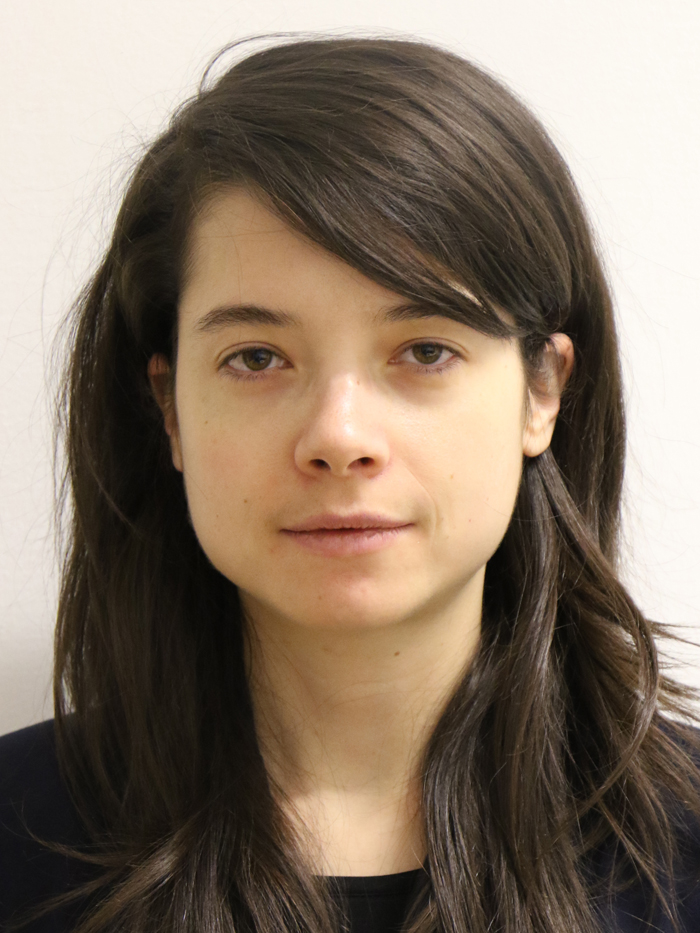
- Livia Puglisi heads the office of the former Federal President of Germany, Christian Wulff.
- She holds a Master's degree in law as well as in Romance Studies from the University of Vienna. From 2018 to 2020 she worked as political advisor and project manager at the Multilateral Dialogue office of the Konrad-Adenauer-Foundation in Vienna. Prior to this she worked as parliamentary advisor to an MoP at the German Parliament (Deutscher Bundestag).
- Her research area focuses on challenges of democracy, integration, social cohesion, international relations and speech writing.
- Livia Puglisi is a member of the working group on terrorism and homeland security of the Konrad-Adenauer-Foundation as well as of the organization Women in International Studies (WIIS) and Vice president of the Italian-Austrian Association.
Caspar Schliephack
Specialist in Islamic studies and consultant.
- Caspar Schliephack has been working as a consultant for a civil society organization in Brandenburg since 2018. His work focuses on “Islamism in East Germany” and North Caucasian communities in Germany, especially Chechen communities.
- He is also co-chairman of the “Office for Yazidi Affairs e.V.” that is working for the improvement of the situation of the Yazidi community in Germany.
- In 2017 he joined the Konrad Adenauer Foundation's Working Group on Terrorism and Internal Security and since 2022 acts as its spokesman.
Publications:
- Zukunft des dschihadistischen Terrorismus: Die Überlebensstrategie des IS, 5 June 2019
- Corona haucht Gewaltakteuren weltweit neues Leben ein, 12 August 2020
- Sicherheitsrelevante Entwicklungen in den Tschetschenischen Gemeinschaften in Deutschland, 10 November 2022
- Die Drogen-Kartelle des Assad-Regimes, 15 November 2023
Tim Segler
Thuringia Ministry of the Interior; PhD candidate, Faculty of Political Science Erfurt

- Doctorate on the Reform Approaches in the Realignment of German Security Architecture Following NSU Revelation
- Doctoral scholarship from the Hanns-Seidel-Stiftung
- Degree course in Administrative Sciences
- Master Public Management / Security Management
- Member of the Interdisciplinary Working Group Domestic Security (AKIS)
- Co-Chair of the “Security, Volunteering and Community Affairs” Working Group at JU Thüringen
- Publication of articles on domestic and security policy inter alia in “Huffington Post Deutschland” or in the debate magazine “The European”
- Member of the “Domestic Policy” Commission of JU Deutschland
- Former Board Member of the Initiative Junger Transatlantiker e.V.
- Member in the Association of Friends of the Federal Academy for Security Policy
- Work priorities: Germany’s Federal Security Architecture, European Security Architecture, State Counter-Extremism and Counter-Terrorism by Police and Intelligence Services, German Domestic Policy, European Migration Policy
Norman Siewert
PhD candidate, Universität Potsdam

- Scholarship holder of the Konrad-Adenauer-Stiftung e.V. doctoral sponsorship (2018-2022)
- M.A., Contemporary History at the Universität Potsdam
- B.A., History, Politics and Administration at the Universität Potsdam
- Academic Assistant at the Konrad-Adenauer-Stiftung e.V., previously inter alia Undergraduate Assistant in the Prevention Project “Project-Related Seminar Work with Young People Against Left-Wing Extremism” at the Gedenkstätte Berlin-Hohenschönhausen
- Work priorities: European History of Ideas, History of Ideology and History of Totalitarian Movements, Extremism and Extremism Prevention
Publications:
- Die Linke - (k)eine normale Partei, 14 May 2020
- Der Konflikt in Nordsyrien und die Kurdensolidarität im Linksextremismus, 11 December 2019
- Feindliche Nähe, 12. Juni 2019
- Rechtsextreme Gewalt in Deutschland vor dem Hintergrund der „Flüchtlings- und Migrationskrise“, 15 January 2019
- Linksextreme Gewalt und Linksterrorismus in Deutschland und Europa, 9 February 2018
Bianca Steinhilber
Research Assistant at the "Frankfurter Forschungszentrum Globaler Islam" & PhD student at the Universität Frankfurt

- Promotion zu Prävention von religiös begründetem Extremismus als soft-power Ansatz in der EU
Stipendiatin der Konrad-Adenauer-Stiftung
vorher u.a. tätig für wissenschaftliche Evaluation des Präventionsprojektes „Pro Prävention“ (Kreis Offenbach), Meltz Communications (Washington D.C.), EU Parlament (Brüssel), CDU Schleswig-Holstein (Kiel)
M.A. European Studies an der RWTH Aachen, Masterarbeit zu salafistischen Bewegungen in Deutschland
B.A. Geschichts- und Kulturwissenschaften JLU Gießen und Université Sorbonne Paris IV
Forschungs- und Arbeitsschwerpunkte: Islamismus/politischer Islam in Deutschland und Europa, Prävention/Deradikalisierung, jihadistischer Terrorismus, Sicherheitspolitik
Publications:
Members of the working group at a glance: T–Z
Markus Tozman
Referent im höheren Dienst, Bundesministerium für wirtschaftliche Zusammenarbeit und Entwicklung

- Zuvor: u.a. Referent für die (damalige) niederländische Regierungspartei CDA, zuständig für Minderheitenschutz in der Türkei, Syrien und im Irak
- Qualitative Forschungsprojekte in der Türkei (2010/2011) und in Ägypten (2013), die die Lage von Minderheiten im Spannungsfeld von Islamismus und Nationalismus untersucht haben
- Mitherausgeberschaft eines Buches über die Lage der aramäischsprachigen Minderheit in der Türkei (2012) sowie mehrere Publikationen im Bereich Minderheitenschutz für NGOs mit Fokus auf den Nahen Osten
- M.A.-Studium der Internationalen Beziehungen und VWL an der Johns Hopkins University, School of Advanced International Studies (SAIS) in Bologna und Washington, DC, mit Schwerpunkt Nahostforschung
- Interessenschwerpunkte: Minderheitenrechte, Sicherheitspolitik und gesellschaftliche Entwicklungen des Nahen Ostens, Türkei-Europa Beziehungen
Publikationen:
- The Slow Disappearance of the Syriacs from Turkey and of the Grounds of the Mor Gabriel Monastery, PA Omtzigt, MK Tozman, A Tyndall (eds), Munster 2012
Dr. Inga Kristina Trauthig
Senior Research Fellow, University of Texas at Austin

Dr. Inga Kristina Trauthig holds a Ph.D. in Security Studies from King’s College London and is a senior associate fellow with the Institute of Middle Eastern Studies (IMES) at King’s College London. She currently acts as head of research of the Propaganda Research Lab at The University of Texas at Austin. Previously, she has been a research fellow with the International Centre for the Study of Radicalisation (ICSR) at the Department of War Studies at King’s College London and received an MLitt in Middle East, Caucasus and Central Asian Security Studies from the University of St Andrews in Scotland. She received scholarships from the German National Academic Foundation, Gerda Henkel Foundation, or the Conflict Research Society, for example.
As a security studies researcher, Inga analyses the shifting landscape of extremism in the Middle East and the West as well as the societal impacts of emerging technologies, particularly regarding political competition and shifting power dynamics. She speaks regularly to academic, media, and government audiences, and her writing has appeared in both popular and scholarly outlets, such as The Hill or Lawfare, Tagesspiegel and Studies in Conflict and Terrorism, Mediterranean Politics or New Media & Society respectively. Her work has been featured by outlets like Al Jazeera, BBC, CNN, Foreign Policy, Tagesschau and The Washington Post.
She has worked on the Middle East and North Africa region for eight years – including times in Israel working for B’Tselem or residing in Tunis working for the United Nations Development Program (UNDP) as well as local organizations such as Fezzan Libya, for example. For her PhD she focussed on Libya. She aims to translate research into policy insights when working with governmental institutions or other bodies such as the Program on Democracy and the Internet (PDI) at Stanford’s Cyber Policy Center, UNDP, the United States Institute of Peace (USIP), Candid Foundation in Berlin, or the Global Network on Extremism and Technology (GNET), for instance. Prior to taking back to academia, Inga worked at Miller and Meier Consulting (MMC) in Berlin as a political consultant for corporate clients.
Publikationen:
- Islamismus als Herausforderung für die deutsche Präventionsarbeit, 26. Februar 2019
- inga_trauthig_islamic_state_libya.pdf (europa.eu)
- Emergent Technologies and Extremists: The DWeb as a New Internet Reality? – GNET (gnet-research.org)
- Addressing Hateful and Misleading Content in the Metaverse | Journal of Online Trust and Safety (tsjournal.org)
- The road to stability: rethinking SSR in post-conflict Libya | DCAF – Geneva Centre for Security Sector Governance
- Counterterrorism in North Africa: From Police State to Militia Rule and the Quagmire of “CVE” - ICSR
- Is the term ‘terrorism’ still useful for understanding conflicts in Libya? | by International Affairs | International Affairs Blog | Medium
Johannes Wiggen
Hessisches Ministerium des Innern und für Sport, Wiesbaden
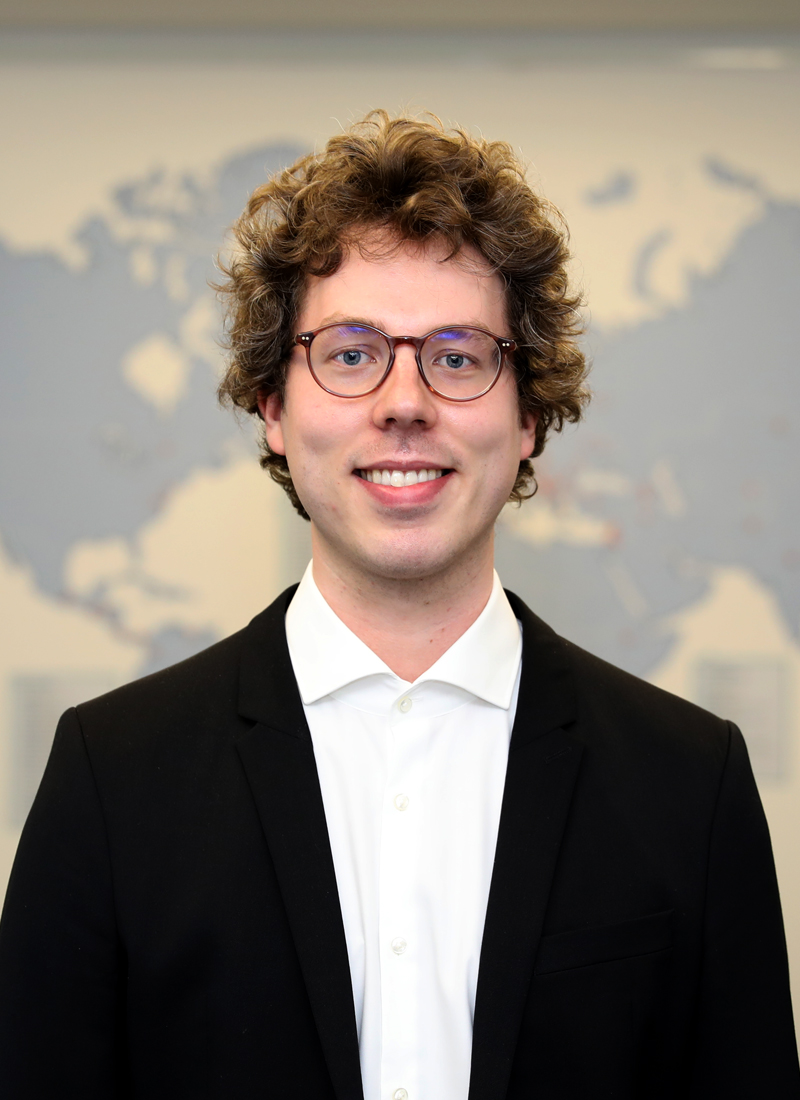
- 2020-2021: Referent für Cybersicherheit, Abteilung Internationale Politik und Sicherheit, Hauptabteilung Analyse und Beratung, Konrad-Adenauer-Stiftung e. V., Berlin
- 2012-2019: Studium der Politikwissenschaft und BWL an der Albert-Ludwigs-Universität Freiburg, der Rheinischen-Friedrich-Wilhelms-Universität Bonn und der University of Dundee
- Themenschwerpunkte: Cybersicherheitspolitik; Desinformations- und Einflussnahmeoperationen; hybride Bedrohungen
- Publikationen:
- Chancen und Grenzen europäischer Cybersicherheitspolitik. In ZEI Discussion Paper C 261, Hrsg. Europäisches Zentrum für Integrationsforschung, 2020.
- The impact of COVID-19 on cyber crime and state-sponsored cyber activities. In Analysen & Argumente Nr. 391, Hrsg. Konrad-Adenauer- Stiftung e. V., 2020.
Former members of the working group at a glance
Jannis Jost
Research Associate | Institute for Security Policy at Kiel University
Marie-Christine Roux
PhD student, Goethe University | Frankfurt am Main
Asset Publisher
Asset Publisher
Asset Publisher
Publications to the topic
 IMAGO / imagebroker
IMAGO / imagebroker
Russia's influence on German domestic security
The Kremlin's actors, instruments and goals
-
Felix Neumann
-
February 6, 2024
-
Single title
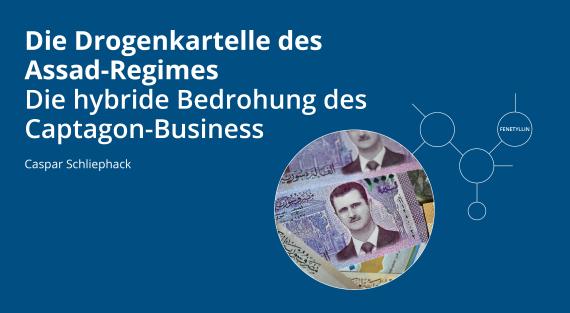 alberto/stock.adobe.com
alberto/stock.adobe.com
The Drug Cartels of the Assad Regime
Terrorist Financing and Organised Crime: The Hybrid Threat of the Captagon Business
-
Caspar Schliephack
-
November 15, 2023
-
Single title
 stock.adobe.com/ink drop
stock.adobe.com/ink drop
Radicalisation as last resort?
The disorientation in the “climate fight” and the limits of activism in extremism
-
Tim Segler
-
November 10, 2023
-
Facts and Findings
 Konrad-Adenauer-Stiftung e. V.
Konrad-Adenauer-Stiftung e. V.
Security-related developments in the Chechen communities in Germany
How Antidemocrats Struggle for Influence in the Shadow of Foreclosure Tendencies and Generational Conflicts
-
Caspar Schliephack
-
November 10, 2022
-
Single title
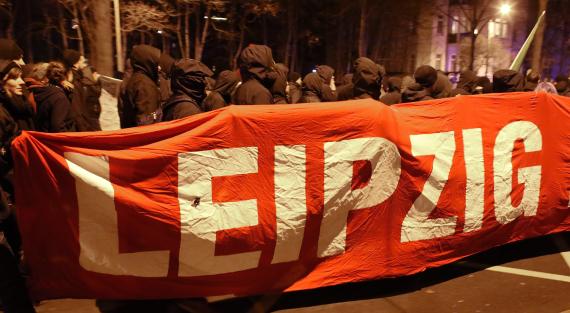 picture alliance/dpa | Sebastian Willnow
picture alliance/dpa | Sebastian Willnow
Auf dem Weg in einen neuen Linksterrorismus?
Linksextreme Gewalteskalation und die Antwort der Sicherheitsbehörden am Beispiel der Leipziger autonomen Szene
-
Tim Segler
-
July 27, 2021
-
Facts and Findings
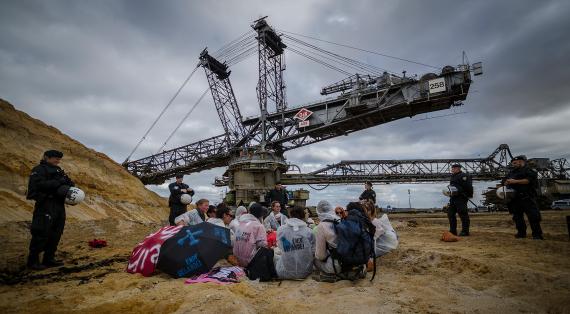 350.org / Tim Wagner / flickr / CC BY 2.0 / https://creativecommons.org/licenses/by/2.0/
350.org / Tim Wagner / flickr / CC BY 2.0 / https://creativecommons.org/licenses/by/2.0/
Klimaprotestbewegung: „Neue“ Gefahr von Links?
Radikalisierungstendenzen im Kontext der Klimaprotestbewegung
-
Tim Segler
-
November 6, 2020
-
Facts and Findings
 iStock.com/Marek Trawczynski; iStock.com/jpa1999; pixabay
iStock.com/Marek Trawczynski; iStock.com/jpa1999; pixabay
Verblüffende Ähnlichkeiten unter Gegnern
Gemeinsamkeiten zwischen Rechtsextremismus und Islamismus
-
Friederike Wegener
-
August 31, 2020
-
Facts and Findings
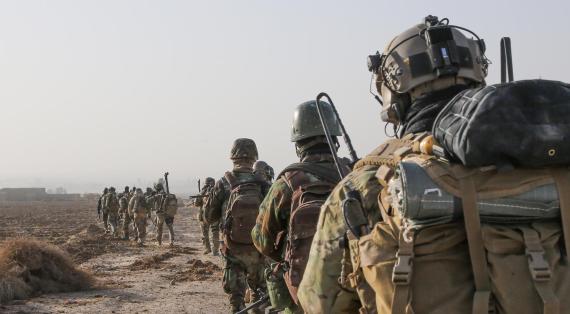 Public Domain
Public Domain
US-Abzug aus Syrien mischt Karten neu
Zu den Folgen eines reduzierten Engagements der USA in dem Konfliktland
-
Gregor Jaecke, Sebastian Gerlach
-
January 15, 2019
-
Country Reports
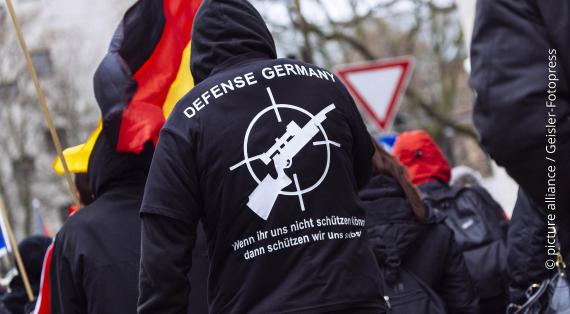 picture alliance / Geisler-Fotopress
picture alliance / Geisler-Fotopress
Rechtsextreme Gewalt in Deutschland vor dem Hintergrund der „Flüchtlings- und Migrationskrise“
Auf dem Weg in einen neuen Rechtsterrorismus?
-
Norman Siewert
-
January 15, 2019
-
Facts and Findings

Online-Radicalisation: Myth or Reality?
Mythos oder Realität?
-
Linda Schlegel
-
August 29, 2018
-
Facts and Findings



